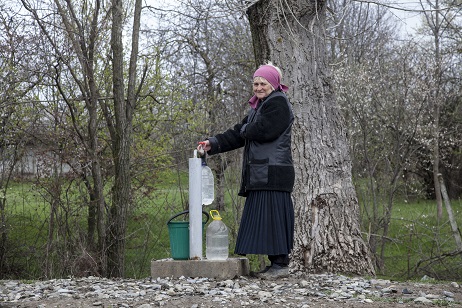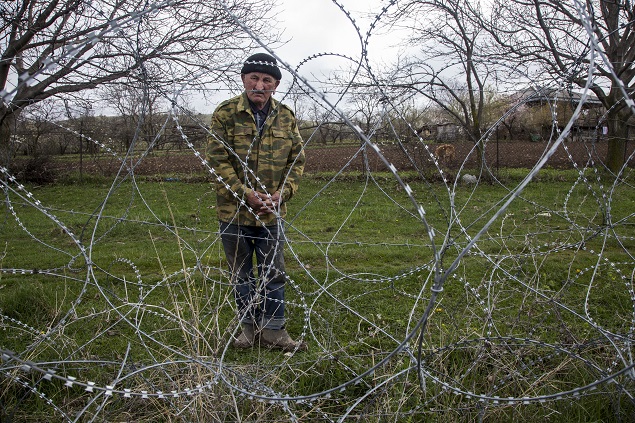Basic human rights violated in Georgia’s occupied regions

All cases of human rights violation in Georgia’s occupied regions have been collated into one document for the global community to review.
Yesterday Georgia’s Foreign Ministry presented a report it had prepared on the human rights situation in two Russian-occupied areas of Georgia, Abkhazia and Tskhinvali region (South Ossetia). This report covered the period of January-March 2015 but the Ministry planned to prepare such documents every four months.
"This reporting exercise aims to contribute to the provision of regular and updated information to the international community, to states as well as to international inter-governmental and non-governmental organisations, on the human rights situation in the occupied regions of Georgia,” Foreign Minister Tamar Beruchashvili said.
The report assessed every case reported during the three month period that allegedly violated four fundamental rights of citizens living in and near Georgia’s occupied regions. These four fundamental rights involved:
- Freedom from torture and ill-treatment;
- Arbitrary detentions;
- Freedom of movement; and
- Right to property.
The report said between 1991 and 2015, Russia’s "well-planned and systematically implemented” "military aggression, creeping annexation and occupation policy” had resulted in hundreds of thousands of people being expelled from their homes to become IDPs and refugees. These people have been deprived of their internationally recognised right to a voluntary, safe and dignified return to places of their permanent residence.
The document also focused on the barbed wire fences installed by Russian guards.
The occupation line along the administrative boundary line (ABL) with Abkhazia and the Tskhinvali region separated Georgia from its two occupied territories, noted the report.
"The occupation line, established by the occupying power since the August War of 2008, prevents several hundreds of thousands of IDPs and refugees from returning to places of their permanent residence. The transfer of the control of the occupation line to the Russian FSB border guards puts further restrictions on ethnic Georgians: Russia continues to place undue restrictions on the local population wishing to cross the occupation line that often runs through their orchards, yards, grazing fields, agricultural plots and cemeteries,” said the report.

Barbed wire fence in Khurvaleti, Georgia. Photo by Nino Alavidze/Agenda.ge.
"People are regularly detained by Russian FSB border guards for so called "illegal border crossings” while the operating crossing points along the occupation line allow crossings only to individuals having one of the types of "documents” recognised by the occupying power and based on vague criteria as to the validity of these documents. Those unable to present those documents or show up at the crossing point out of working hours are denied the right to cross, often leading to casualties among those locals, including children and women, seeking urgent medical treatment," said the document.
According to Georgia’s Foreign Ministry, 184 illegal detentions for "illegally crossing the border” took place in 2011; 301 detentions were reported in 2012; 441 detentions in 2013; and 307 detentions in 2014. Meanwhile Russian statistics noted in the first three months of this year 550 people were detained for the same reason.
To read about all cases of violations of fundamental human rights in Abkhazia and Tskhinvali (South Ossetia) see the full report below.
 Tweet
Tweet  Share
Share